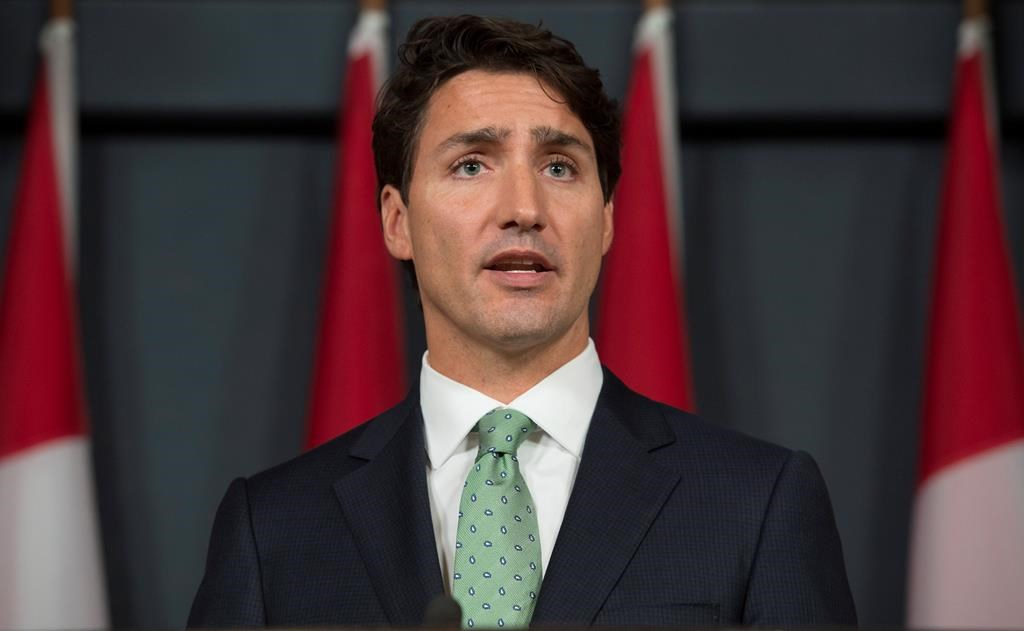Support strong Canadian climate journalism for 2025
It has been something of a taboo in Canada−China relations, a subject rarely raised in public but clearly on the minds of successive Canadian governments in their uneasy courtship of the world’s second−largest economy.
The spectre of China’s "Operation Fox Hunt" — the pursuit and harassment of so−called economic fugitives and other dissidents — cast a shadow Wednesday over the arrival of Chinese Premier Li Keqiang, the first visit of its kind in six years.
In his efforts to revitalize the economic component of Canada’s "hot and cold" relationship with China under the previous Conservative government, Prime Minister Justin Trudeau has not shied away from human rights concerns, including during his first trip to China earlier this month.
But the prime minister was forced to address something far more sinister — the fact that agents of the Chinese government are harassing Canadian residents or citizens, hoping to force them back to China to answer for various crimes.
"I brought up a broad range of concerns around security when I met with Chinese leadership a number of weeks ago, and will continue to talk about those issues when I meet with China in the coming days," Trudeau told a news conference Wednesday.
An internal government memo — written last year for the previous government by Daniel Jean, Trudeau’s current national security adviser — goes a lot further than the prime minister was willing to do.
It was not in Canada’s interest to be a "haven for fugitives" and they should be removed, Jean wrote in 2015 in his capacity as deputy minister of foreign affairs. The memo was obtained by The Canadian Press under the Access to Information Act.
Jean provided additional details of the anti−corruption campaign that Chinese President Xi Jinping started in 2014 to return fleeing economic fugitives to China. Critics have called it a ruse that actually targets political opponents of the ruling Communist Party.
Jean described how three separate Chinese entities — its foreign minister, its supreme court and its Supreme People’s Protectorate — sent out a notice in 2014 urging Chinese nationals wanted abroad to surrender.
"The notice was circulated amongst the Chinese diaspora, promising lighter sentences for those that surrendered voluntarily ... family members and friends of overseas economic fugitives were advised to encourage their loved ones to surrender."
The heavily censored document makes no mention of Canada. But Paul Evans of the University of British Columbia’s Institute of Asian Research said it’s an open secret that it happens on Canadian soil.
"We’ve known about Fox Hunt and Skynet for some period," Evans said. "It has not been the topic of public discussion."
Fox Hunt has been in the news in Australia and other countries, but has been consigned to the shadows in Canada.
"Our government has not led a discussion on this. And people have been reluctant to speak about," he said. "On a 10−point scale, this is not a Level 7 or 8 emergency, but it is a serious concern that needs to be watched."
The fact that so−called Chinese agents have been active in Canada is not new, he said. But their presence is rare. The Chinese government manly uses "pressure through telephone calls, relatives in China and other things."
Jean’s memo suggested China’s return on that expenditure of its foreign espionage capital might have not been that good. It says statistics released by China in 2014 covering a six−month period of Fox Hunt activity showed the capture of 680 people in 69 countries. That total included 208 people who allegedly fled with $1.93 million.
Jean’s memo cited another analysis that estimated $1.08 trillion was funnelled out of China between 2002 and 2011.
In his new role, Jean is charged with delivering on the new high−level security dialogue Trudeau established with Beijing on his recent visit, a dialogue that includes establishing a controversial extradition treaty.
Trudeau defended the move Wednesday as the Conservatives and NDP said China’s frequent use of the death penalty, among other things, made it a bad candidate for an extradition treaty with Canada.
"The idea of an extradition treaty with communist China, with one of the worst human rights records in the world, is a prima facie violation of the Charter of Rights," said former Conservative cabinet minister Jason Kenney.
Trudeau said Canada would never approve the extradition of anyone facing the death penalty.
Trudeau said the new security dialogue would give Canada a venue to raise serious issues with Chinese leaders, as part of a "consistent relationship with one of the world’s largest economies, an economy that provides huge opportunities for Canadian businesses."
National Observer exists thanks to reader subscriptions and donations. Please subscribe today.





Comments
If China goes after the folks parking their $$$ in Vancouver's real estate and "talk them into" handing the property over to China, they would own a great deal of property here. Does that not bother anybody else?